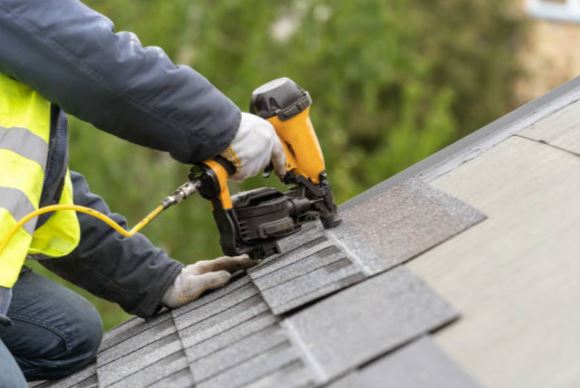How Long Does It Take to Replace a Roof?
When it’s time to replace a roof, one of the most common questions homeowners ask is how long the process will take. While it may seem like a straightforward job, there are several factors that affect the timeline. Let’s break down the key elements that influence roof replacement times in the U.S.
Key Factors That Impact Roof Replacement Time
Roof Size and Design
The size of your roof plays a big role in how long the replacement takes. A larger roof naturally requires more time to remove and install. In the U.S., most homes have roofs that range from 1,500 to 2,500 square feet. The complexity of your roof design also matters. Roofs with multiple slopes, valleys, or dormers will take longer due to the increased difficulty and detail work needed.
Type of Roofing Material
The type of roofing material you choose has a direct impact on the installation time. Asphalt shingles, the most popular choice for U.S. homes, can be installed relatively quickly. On the other hand, materials like tile, wood shakes, or metal require more time due to the specialized skills and tools required. Typically, asphalt shingles can be installed in 1-2 days, while other materials may stretch the job to 3-5 days.
Weather Conditions
Weather is another crucial factor. Roofers can’t work efficiently in heavy rain, snow, or extreme winds. If you’re in a region that experiences frequent weather changes, expect delays. Spring and summer are peak seasons for roofing in many parts of the U.S. because of the more predictable weather.
Contractor Availability
Roofing contractors often book their schedules weeks in advance. Depending on the season and your location, you might have to wait a bit before they can start. Areas with high demand, especially in regions hit by storms, may see even longer delays. Working with a trusted roofing company like RenoSimplicity can help ensure the job is started as soon as possible.
Permitting and Inspections
In many areas, you’ll need permits before replacing your roof. This can add some time to the project, especially if there are inspection requirements during or after the job. Local building codes vary across the U.S., so check with your roofing contractor about any required permits and the time needed to secure them.
General Timeline Breakdown
Single-Day Replacements
In some cases, roof replacements can be completed in a day. This usually happens when the roof is small, simple, and uses common materials like asphalt shingles. A crew of 4-6 workers can often get the job done efficiently under these conditions.
Two to Three Days
Most residential roof replacements fall into this range. For homes with average-sized roofs and standard materials, 2-3 days is a realistic timeframe. This accounts for both the tear-off of the old roof and the installation of the new one.
Up to One Week or More
Larger homes, complicated roof designs, or difficult-to-install materials can extend the process to a full week or even longer. Unpredictable weather and unforeseen complications, such as discovering damaged wood underneath the shingles, can also stretch the project.
Additional Time Considerations
Tear-Off vs. Roof Overlay
One of the biggest factors that can affect how long a roof replacement takes is whether you’re doing a full tear-off or a roof overlay. A tear-off, where the old roof is completely removed before the new one is installed, is more time-consuming. A roof overlay, where new shingles are placed over existing ones, can cut down on time but isn’t always recommended by every roofing contractor.
Unforeseen Complications
Sometimes, roofers find problems during the job that weren’t visible before starting. Rotten wood, mold, or structural damage to the roof’s deck can all add time to the project, as these issues need to be addressed before the new roof can be installed.
Post-Installation Time
Even after the new roof is installed, there’s still some work to be done. Roofing contractors will need time to clean up and dispose of the old materials. Depending on your local regulations, a final inspection might also be required before the job is officially complete. This process can add another day or two, but the good news is that it doesn’t affect your use of the new roof.
Summary of Typical Timeframes
In most cases, a roof replacement will take anywhere from 1-3 days, but factors like size, material, weather, and unforeseen issues can extend the time. For larger or more complex jobs, expect the process to take up to a week or more.
For a smooth and efficient roof replacement, working with an experienced roofing company like RenoSimplicity can make all the difference in reducing potential delays.



